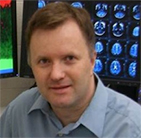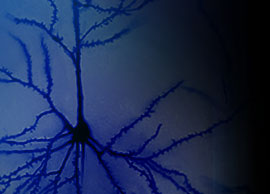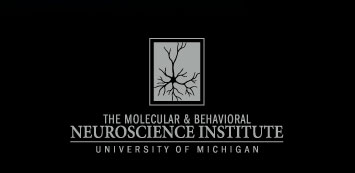


| By Alpha|By Interest|Emeritus | ||
1028 MBNI |
(734) 764-8856 |
 |
Current Research Interests:My primary goal is to understand how brain mechanisms of emotional learning contribute to psychiatric disorders and how to best use our knowledge of these mechanisms in prevention and treatment. In particular, I am interested in emotional trauma and attachment. Using animal models, innovative behavioral protocols, functional anatomy methodologies, viral vector techniques and pharmacological manipulations, our group works on identifying brain systems and cellular mechanisms critical for these processes. My clinical practice (I work as a child, adolescent and adult psychiatrist at the University of Michigan Department of Psychiatry) and collaborations with other research groups put us in a unique position to apply our basic research in preclinical and clinical settings. We are currently pursuing two major lines of research: Basic Mechanisms of Emotional Learning and MemoryMemories are made in stages. After initial acquisition, at first unstable, new learning becomes consolidated into persistent long-term memories. However, retrieval of the consolidated memory enables its modification: strengthening, weakening or updating, depending on the circumstances of the retrieval. These postretrieval memory processes are known as memory reconsolidation. We study molecular, cellular and systems mechanisms underlying emotional memory acquisition, storage, maintenance and expression, with a special focus on reconsolidation. Memory reconsolidation mechanisms have been proposed to be involved in a variety of pathological conditions including posttraumatic stress disorder (PTSD), phobias, obsessions and compulsions, substance addictions, “false memories” phenomena, delusions and others. Studying reconsolidation processes may thus help us to better understand the nature of these conditions and open new ways of treating them. Early Infant Trauma and Parent-to-Infant Transmission of TraumaHumans and other mammalian species depend on parental care for long periods of time after birth. Survival of the infant fundamentally depends on developing attachment to the caregiver who reciprocally bonds with the child. Maternal presence typically attenuates infant's stress responses. However, maternal distress or deprivation of maternal care during the developmentally critical periods of time may make children more vulnerable to other environmental stressors. We study early infant trauma in the context of attachment. We investigate how trauma affects attachment and how healthy attachment and bonding protect from the effects of trauma. Our group works on identifying neural circuits and molecular mechanisms underlying infant's vulnerability and resilience to psychological trauma with the ultimate goal of developing interventions reversing negative effects of these early childhood adversities. Link to my lab website:
|
||


 |
UM Gateway | UMMS | UMHS |
| Copyright © 2005 The Regents of the University of Michigan | |